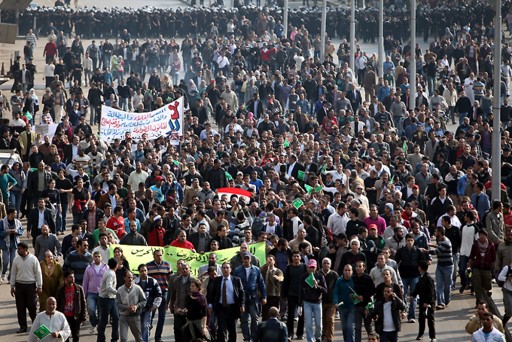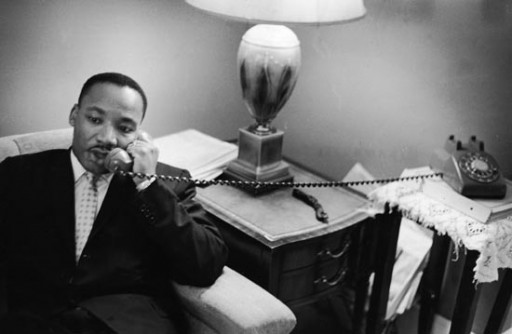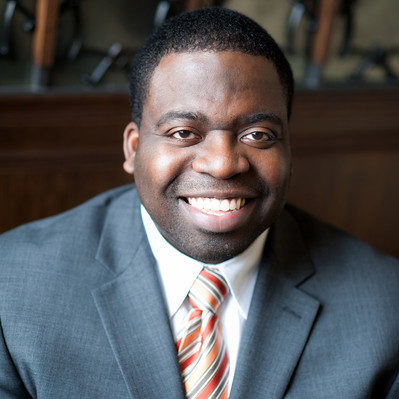
Authorities had blocked internet, mobile phone and SMS services in an attempt to disrupt planned demonstrations (Photo From EPA c/o Al Jazeera)
Like a good deal of bloggers, I haven’t commented because the situation in these countries prior was not something that I paid much attention to prior to the current political unrest. As a result, I am ignorant about the myriad of unique issues affecting each situation. The news media has decided that at least two (Tunisia and Egypt) of these stories are important and that is a good thing. Unfortunately, much of the coverage puts a lot of emphasis on what outcome is good for the US economy, corporations and consumers.
But one thing has bugged me about the coverage. In these protests social media doesn’t “lead the way”, nor are the protests part of “twitter revolutions” any more than Civil Rights movement in America was a “telephone movement”.

"Telephone Revolution"? American civil rights leader Dr. Martin Luther King, Jr. (1929 - 1968) sits on a couch and speaks on the telephone after encountering a white mob protesting against the Freedom Riders in Montgomery, Alabama, May 26, 1961. (Photo by Express Newspapers/Getty Images)
A social medium is a communication tool to be leveraged by people to increase efficiency of communication. It is not a catalyst of revolution. Calling this a “twitter revolution” is a lazy shorthand that neglects to acknowledge the purpose and will of the people who rise to protest oppressive regimes. (And yes periodicals, pamphlets, books, postal service, and the telephony are all social media in the literal sense).
These revolutions tell us that the status quo has become untenable for a critical mass of citizens in each of these countries. We must understand: revolutionary movements can be broken and even when a country’s present regime falls at the hands of its own citizens, the regime that fills the void could create a reality that is far short of ideal.

![Authorities had blocked internet, mobile phone and SMS services in an attempt to disrupt planned demonstrations [Photo From EPA/Al Jazeera]](https://luimbe.com/wp-content/uploads/2011/01/photo_AlJazeera_Egypt.jpg)